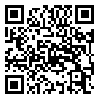دوره 10، شماره 39 - ( فصلنامه علمی پژوهشی رفاه اجتماعی 1389 )
جلد 10 شماره 39 صفحات 150-123 |
برگشت به فهرست نسخه ها
Download citation:
BibTeX | RIS | EndNote | Medlars | ProCite | Reference Manager | RefWorks
Send citation to:



BibTeX | RIS | EndNote | Medlars | ProCite | Reference Manager | RefWorks
Send citation to:
Rezapour Mirsaleh Y, Abdi K, Safi M H, Ghasemi M. (2011). Relationship of Religiosity and Coping Style with General Health of Mothers of Children with Intellectual Disability. refahj. 10(39), 123-150.
URL: http://refahj.uswr.ac.ir/article-1-324-fa.html
URL: http://refahj.uswr.ac.ir/article-1-324-fa.html
رضاپورمیرصالح یاسر، عبدی کیانوش، صافی محمدهادی، قاسمی محمد.(1389). نقش باور دینی و سبک مدارا در پیش بینی سلامت عمومی مادران دارای کودک دچار ناتوانی ذهنی رفاه اجتماعی 10 (39) :150-123
چکیده: (10724 مشاهده)
Objective: The aim of this study was to compare the role of religiosity
dimensions and coping styles in the predicting general health of mothers of
children with and without intellectual disabilities (ID).
Method: A total of 124 mothers of children with ID and 124 mothers without a
child with ID were matched and selected using cluster sampling. Data were
collected using general health questionnaire (GHQ), Islamic religiosity scale
(IRS) and way of coping questionnaire (WOCQ).
Findings: Mothers of children with ID had more social dysfunction, somatic
symptoms, depression and anxiety than mothers of children without ID.
Religiosity had a significant role in finding the meaning and hence improvement
of health status of mothers of children with ID. Positive reappraisal had more
important role in improvement of social function of mothers of children with ID
than in mothers of normal children.
Conclusions: Religious belief can help mothers of children with ID to cope with
child care problems, to find meaning of life and to improve their health status.
Further, education of mothers to accept their disabled child improve their
physical, mental, and social function.
| بازنشر اطلاعات | |
 |
این مقاله تحت شرایط Creative Commons Attribution-NonCommercial 4.0 International License قابل بازنشر است. |





